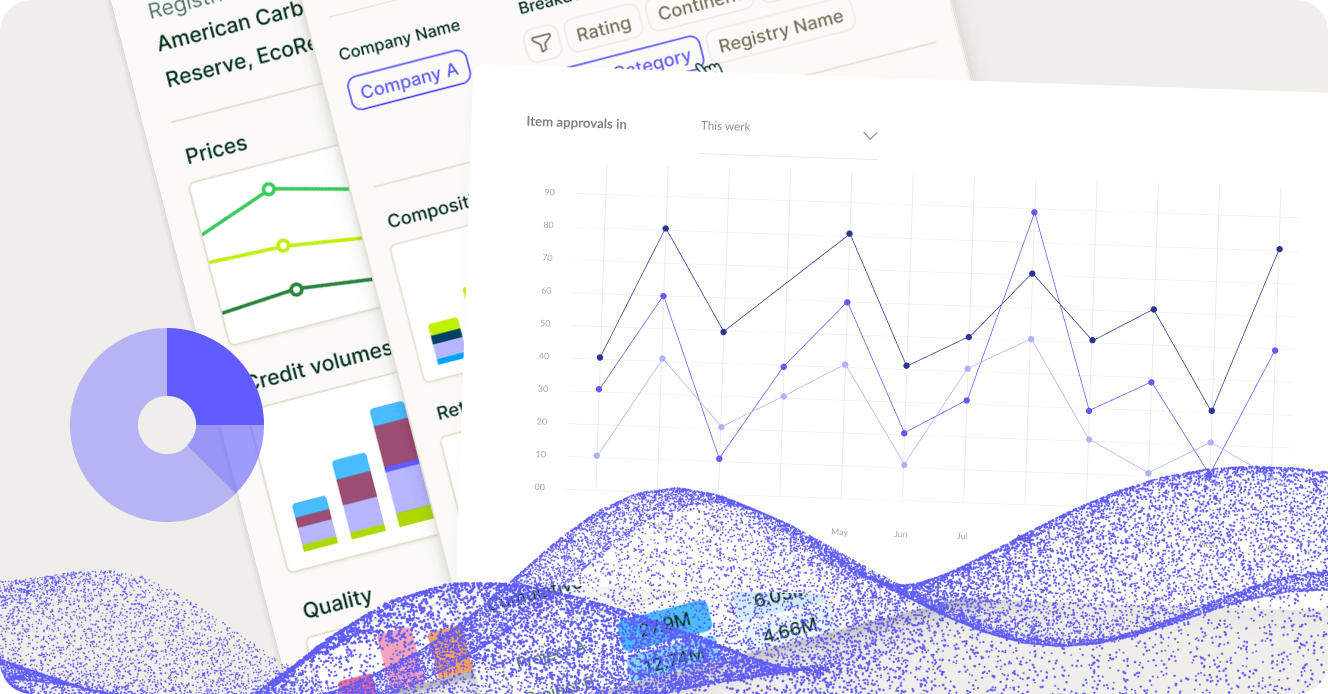“Over the years we’ve invested significantly in our field data team - focusing on producing trusted ratings. While this ensures the accuracy of our Ratings, it doesn’t allow the scale across the thousands of projects that buyers are considering.”
For more information on carbon credit procurement trends, read our "Key Takeaways for 2025" article. We share five, data-backed tips to improve your procurement strategy.

One more thing: Connect to Supply customers also get access to the rest of Sylvera's tools. That means you can easily see project ratings and evaluate an individual project's strengths, procure quality carbon credits, and even monitor project activity (particularly if you’ve invested at the pre-issuance stage.)
Book a free demo of Sylvera to see our platform's procurement and reporting features in action.
This week has seen the start of COP27 in Sharm El-Sheikh in Egypt. The annual meeting of governments and climate leaders from across the world sometimes sees great jumps forward in international agreements on climate action, and always attracts a number of announcements from the private and public sectors. However, with other subjects dominating the headlines recently, and any coverage of COP focusing on who will or won’t be attending, there has been little discussion so far of what might happen this year. So, what should we be looking out for at COP27?
Firstly, what is a COP?
COP stands for Conference of the Parties, and refers to an annual meeting of the signatories to the United Nations Convention on Climate Change (UNFCCC). Each year, COP is held in a different location.
What happens at COP?
COP is where significant negotiations over international climate policies occur, and where treaties such as the 1997 Kyoto Protocol and 2015 Paris Agreement are agreed
Outside of the years where major treaties are negotiated, COP sees discussion over the finer details of these treaties, reviews of the implementation of the treaties, and decisions necessary to promote the effective implementation.
What happened last year at COP26?
Last year’s COP was held in Glasgow and saw a focus on raising ambition and ‘keeping 1.5 alive’ - in other words, taking the actions necessary to give us a realistic chance of limiting global temperature increases to 1.5C.
One of the biggest developments was the agreement of the final section of the Paris Agreement, Article 6, which deals with international cooperation and carbon trading. For a recap, check out our blog on COP26 and our Article 6 policy guide.
What will happen this year?
This year won’t see the signing of any major new treaties like the Paris Agreement, but it will be important all the same. For one, rarely are so many significant figures from all across the world all in one place at one time. The increased focus on the climate crisis is also a great opportunity to drive forward progress and bring attention and scrutiny to issues that otherwise are often overlooked.
This year’s COP is expected to have a different feel and focus to last year. Apart from the significant shift in geopolitics in the wake of Russia’s invasion of Ukraine, this year’s COP is also shifting focus to implementation and climate finance. Now that agreements have been reached, commitments made and targets set, how are countries actually doing on achieving these? An increased focus on climate finance may have some relevance for the private sector, as governments in developed nations look for creative ways to raise the huge sums of money previously committed.
Previously sticky topics such as loss and damage liability and compensation is also expected to be raised again - as an ‘African COP’ the Egyptian Presidency is positioning itself as a voice for developing countries who have pushed for this in the past.
What about Article 6?
Progress has started to be made on the implementation of Article 6 since its agreement last year. Just some of the particular issues that will probably be discussed most prominently at COP27 include:
- Infrastructure: how will accounting and reporting actually work for Article 6.2
- Alignment with NDCs (Nationally Determined Contributions i.e. each country’s emissions targets): will CERs (Article 6.4 units) be allowed to be used towards NDCs, and how will NDC article 6.2 apply for years between NDC target years? How will this affect Corresponding Adjustments?
- CDM transition: Article 6.4 is set to replace the Kyoto-era Clean Development Mechanism. Will methodologies simply roll over? Will there be different rules for which sectors are included and excluded? How will removals be defined and considered?
Although there will still be a huge amount of work to do on Article 6 implementation after COP, we are hopeful that the progress made in the next couple of weeks will provide an indication of the direction of travel, and address some of the uncertainty that has impacted VCMs over the last year.
Sylvera at COP
This year 3 Sylverans will be attending COP: our CEO Al Furey, President Sam Gill, and VP Policy Ben Rattenbury. All three are on the ground in the Blue Zone, where UNFCCC negotiations happen.
Over the next fortnight, they will be participating in a number of events and panels, including:
- Scaling Voluntary Carbon Markets. A panel hosted by Bain on Thursday 10th, 11am EET.
- Delivering on climate pledges - What does high-quality corporate action look like? A panel hosted by Salesforce on Saturday 12th, 10am EET.
- Exploring Carbon Credit Quality as a Key to Corporate Climate Action. A panel hosted by the WWF’s Carbon Credit Quality Initiative on Wednesday 16th at 8.20am.
Sylvera will also be hosting a panel discussion in the Singaporean Pavillion on Wednesday 16th at 4pm. We will be joined by representatives from the Singaporean Prime Minister’s Office, the World Bank,and IETA. The panel will discuss ‘Lessons from the VCM for future Article 6 deals’.
Stay up to date
There is always a huge amount of noise around COP, and it can be hard to pick out which developments are significant and what impact they will have. We’re here to help you stay ahead on the curve and understand what this all means for your organization! Stay tuned for updates, insights, and behind the scenes snippets, and join us for our post-COP debrief on December 1st.















